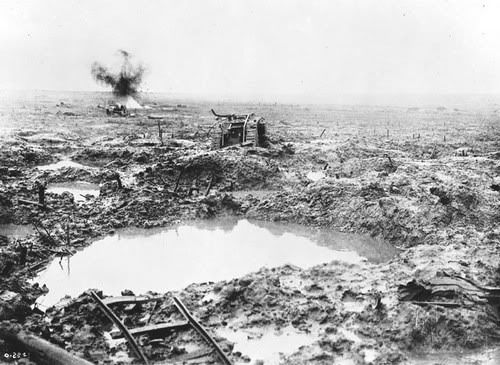
Posted on 04/15/2014 4:18:24 PM PDT by KosmicKitty
After listening to one of my favorite podcaster, Dan Carlin & his Hardcore History, about the beginning of World War I, I would love to find out more about this time in history.
I know that Freepers are a well read bunch and I am asking for any recommendations you may care to make in a good book covering this time in history.
I meant 1918 - oops
The Great Influenza by John Barry? Great read!
By Martin Middlebrook
Not too many folks have read, of know of this but it is horrific what was perpetrated against WWI vets.
And the willingness of some to throw their Oath in the rubbish bin.
And "War Is A Racket," by Major General Smedley Butler, USMC 1935
Ditto on the Massie books.
Also,
Catastrophe 1914: Europe Goes to War by Max Hastings.
The Marne, 1914: The Opening of World War I and the Battle That Changed the World by Holger H. Herwig
For a really different perspective try John Terraine’s DOUGLAS HAIG: THE EDUCATED SOLDIER and/or Terraine’s shorter THE WESTERN FRONT 1914-1918. In both he defends the Brit from the usual comic book depiction as the butcher of the Western Front and argues that Haig was destined for victory while Napoleon was destined for defeat (citing the nature and abilities of both men).
For the Eastern Front others have recommended Alexander Solzhenitsyn’s AUGUST 1914. I love Solzhenitsyn’s philosophy of history and how certain short time periods are “knots” of incredible events and change such as another knot in November of 1916 (lead-up events to the October 1917 Revolution). In AUGUST 1914 Solzhenitsyn writes of a prewar schoolboy calling out to the elderly Leo Tolstoy and relates their reflections on philosophy and other exchanges of Russian home front thinking. It is not just the military maneuvers and the epic battle of Tannenberg. It is written like a novel but it is based upon true narratives and accounts that Solzhenitsyn collected.
In CANCER WARD Solzhenitsyn hit the top of his craft and the great Bethell and Burg translation makes the Engish version an easy read for an AS lengthy book. It is largely an autobiographical experience but goes again into the philosophy of life itself. I think it is his greatest work.
No, it was Flu by Gina Kolata, but I’m going to look up your book tomorrow.
Thanks!
It provides (among other things) a very simple report of just how and why the assassination of the Archduke of Austria resulted in the Great War.
Easy reading and likely it will be made into some dramatization later as Follett has a huge following and often his books are made into TV series.
Easy Question.
The Guns of August.
For me, The Zimmerman Telegram is a distant second.

1913: In Search of the World Before the Great War by Charles Emmerson.
A very informative book about critical locales around the world and their political/social situations just before WWI. A fascinating read about a time period that gets little popular discussion.
A Storm in Flanders: The Ypres Salient, 1914-1918: Tragedy and Triumph on the Western Front by Winston Groom — yes the Winston Groom who wrote Forrest Gump.
My others are already listed by others but I didn’t see that one mentioned previously. An yes, the WWI museum in Kansas City if you ever can.
While not specifically a WWI book, William Manchester’s, “The Arms of Krupp,” is a good read and gives a lot of insight into the mindset that brought about the war...
Will add that to my list. I am very interested in what led up to the war. Thank you
Was it The Great Influenza, by John M. Barry?
Really made an impression on me!
No, it was Flu by Gina Kolata. I’m going to have to check out your suggestion tomorrow at the library. I’m always looking for a good read.
Can think of no 20th Century author that had a better understanding of history, human nature and the inevitable admixture that led to world tragedy. Solzhenitsyn in August 1914 painfully and accurately recorded the why and the actual events that doomed Russia between 1900-1917. Cancer Ward examines that the decadence and decline of Russia after 1920 did not happen in a vacuum. It demonstrated how the worst aspects of human nature, which are always present, were actually encouraged and celebrated in a decadent destructive frenzy. Solshenitsyn, like all great writers, had a universal perspective. Like Shakespeare his understanding of human nature, psychology and events transcends his beloved Russia and is applicable to all. Western readers would do well to reread Cancer Ward. Intelligent readers would recognize themselves and current times.It would be readily apparent that history is not a static,dead concept, but recurs because human nature does not change, and when a society surrenders to its baser instincts, the outcomes are very predictable. Solzhenitsyn was a very spiritual man. He understood the concept of “original sin” and that if man to be “saved” (even in this realm) he needed to experience a transcendence that each generation or each culture needed to achieve in their time.
“The Myth of the Great War”
http://www.amazon.com/The-Myth-Great-War-Military/dp/0060084332
“Miracle at Belleau Wood: The Birth of the Modern U.S. Marine Corps”
http://www.amazon.com/Miracle-Belleau-Wood-Modern-Marine/dp/076276130X
Also, I was going to recommend “The Arms of Krupp” (Krupp went under after WWII), but I see Joe 6-pack already did.
Disclaimer: Opinions posted on Free Republic are those of the individual posters and do not necessarily represent the opinion of Free Republic or its management. All materials posted herein are protected by copyright law and the exemption for fair use of copyrighted works.